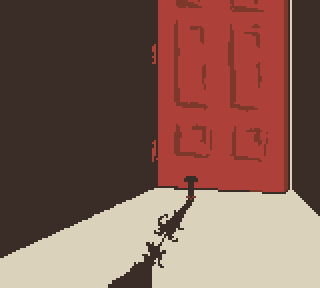
Book Thoughts: The Saint of Bright Doors
Thrusting out blindly for my next read, I ended up settling on the most recent Nebula winner: The Saint of Bright Doors. The audiobook version is superbly narrated, and the whole experience was a very fun departure from my normal fantasy/scifi reads.
The setting is a modern-tech alternate indo-inspired continent with very different takes on magic. Where I frequently enjoy fantasy that provides clear constraints on it's magic system, this book leans heavily into a more mystic world of vague demons and inexplicable occurrences -- such as how any door left closed too long in the City of Luriat will seal forever.
The author brought the city to life, painting an extremely vivid and interesting world with which they tell the story of Fetter, a man with strange powers trained from childhood to assassinate a spiritual leader.
Spoilers below.
-That spiritual leader is in fact Fetter's father. The book apparently draws on the ancient story of Siddhārtha Gautama's (The Buddha) son Rāhula, which also means "fetter" - though the original story acts only as inspiration to light the fuse.
In the Saint of Bright Doors Fetter grows up and eschews his destiny, instead living out a life in the caste-and-politics-riddled Luriat. Here he lives and loves, and the story draws in the reader as several complex threads are spun around his life as he becomes entrenched in the plans of others.
I was honestly completely enthralled in the book -- the social and religious commentary was interesting, the re-introduction of Fetter's parents was exciting and the plans of Fetter's friends were gripping. The book continuously makes you forget about the mystical and magical components of its world building -- then sneaks in a reminder while keeping everything coherent.
Around the 3/4 mark some interesting stuff happens and Fetter ends up in the Luriat prisons. The section could have honestly been its own lovely freestanding novella, but with the momentum of the story so far behind it the section dragged. Everything that took part after that section was bewildering to me.
The last act or so of the book was baffling. Perhaps it was a "fuck you" to western storytelling structure, but the book leaves almost every thread unresolved. In fact, in a way it essentially drops the main character entirely, leaving me questioning the point of building him up!
Despite the confusing and unsatisfying finale I found the novel very refreshing, and would love to hear the narrator's voice again in this genre. I'd love to see more indo-oriented fantasy as well, and want to continue delving into fantasy / scifi written by authors with more varied cultural backgrounds to see what wonders they can conjure.
